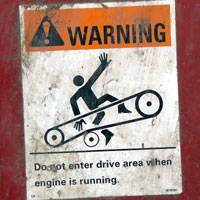Rising Up and Rising Down
I’ve just finished this book by William Vollmann, so I thought I would give a little...well I would hardly say I'm qualified to be a book reviewer, I will just say here are some words about it.
What I've read is only the 730-page abridged version, Chapters did not have the original 7-volume 3800-page work in stock(yeah, that's a good excuse.) He admits that he only did this version for the money and very quickly, an example of the self-effacing attitude(of course it could be a clever shtick)he shows throughout, which I think is necessary for what he’s attempting here.
He has the rather modest goal of analyzing violence in all it’s forms, finding the common justifications (excuses, if you will) given for it, and and creating what he calls a "moral calculus" to evaluate those justifications to ultimately help decide what is right and wrong.
His thesis goes that the most basic right is that of an individual to defend itself from an immediate threat and everything else—defense of honour, defense of class, defense of ground, punishment, revolution, etc.--is built on, abstracted from that and may be more or less justifiable depending on circumstances.
Now it does largely sound like common sense, but it doesn’t lead you to pat, easy answers, indeed it’s quite likely there will be something about it that you really don’t like even if you accept the logic. And of course, “common sense” isn’t really that common in academia, so bravo.
His research comprises historical events and his first-hand experiences as a journalist—while humbly pointing out the fallacies in relying on either. We start in the catacombs of Paris, end in Kingston, Jamaica, and visit(just off the top of my head)Mogadishu, Malaysia, Sparta, the Soviet Union(of course,) Yugoslavia, Abraham Lincoln, the Marquis de Sade, Ghandi, Plato, Cortez, and there’s even a line from Emily Carr about painting trees. And that’s just this abridged edition.
So the sheer scope is really impressive, and his writing is pretty ornate(at least relative to the last book I read...one of my old Tom Clancy novels)for what could have been rather cold analysis of ends and means. This is, apparently, just in case his theory is a load of bunk, that we might at least be entertained. Of course there’s not much “fun” in it, but it’s engaging. The driest part was the actual comprehensive listing of the “moral calculus” in all it’s permutations, which was not really meant to be just read through on it’s own, it’s reference material for wannabe vigilantes and revolutionaries.


0 Comments:
Post a Comment
<< Home